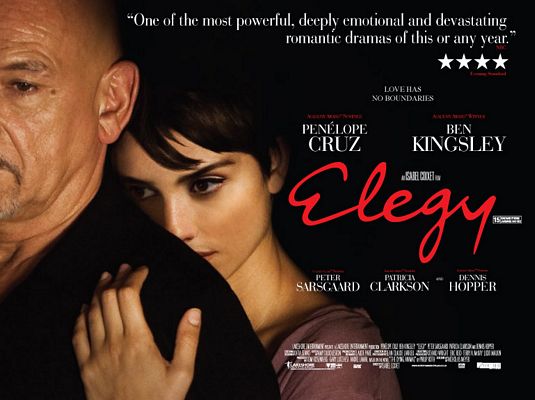Has Anyone Actually Seen 'Watchmen'?
 Thoughts from Kevin Boyd of the University of Chicago Divinity School on the most under-criticised film of the year:
Thoughts from Kevin Boyd of the University of Chicago Divinity School on the most under-criticised film of the year:
" Watchmen directly asks what no other superhero movie has ever had the courage or audacity to posit: Is society actually worth saving? In this sense Watchmen is not just about the flawed psychologies of its costumed adventurers; it is perhaps the first superhero movie to take the concept of universal sin seriously. The traditional superhero film employs a formulaic template: Evil threatens the established social order until good intervenes. The roles of good and evil are clearly and easily defined. This simple narrative structure is built on two premises that, until recently, have gone unchallenged in the genre. The first is the unambiguous coupling of the hero with the moral good and the villain with moral evil ... The second premise, though, has until now remained virtually unassailable, and it is this element that makes Watchmen so interesting and so difficult to digest. The second premise is that society is worth saving, that the social order under threat is worthy of salvation. In most previous superhero films the desire to uphold the social order is simply taken as a given – society is good and it must be saved from the threat of evil. But in Watchmen the immediate crisis of mutually assured nuclear destruction is not caused by one discreet individual; there is no named villain. Instead, the threat is posed by the morally bankrupt social order itself. Evil is not external to the social order; it is characteristic of it. As Watchmen member Rorschach states, “The world will look up and shout ‘Save us!’... And I'll whisper ‘No.’” ... In a particularly poignant moment in the film, the hero Night Owl looks out on a murderous rampage by the sadistic hero (and his co-Watchman) The Comedian and asks, “What happened to the American Dream?” The Comedian responds, “It came true. You’re looking at it.”
In our current world of political discourse and economic crises, perhaps The Comedian’s response hits a little too close to home. Situated between a “war on terror” and world-wide economic collapse we inhabit a time where sin feels omnipresent. What we lack is a robust way to speak about it. We’ve lost the Niebuhrian sense of ourselves as our own most vexing problem. And yet just as the neo-orthodox theologians resurrected the notion of human sin in response to world war, so too must we find new ways to name and speak of our experiences; in a fashion, films like this are the first steps in such a process because they show a world saturated in sin – a world that is sometimes uncomfortably too like our own. The film offers no easy answers, though. After all, the dominant narrative voice that structures most of the action is that of Rorschach, in every sense an absolutist and a fascist. We might think of Watchmen as the first segment of a traditional jeremiad, a literary text lamenting the moral failure of society and warning of its ultimate collapse without immediate and genuine repentance – but given the extreme pessimism of Watchmen’s anthropology one must wonder whether society, even when violently compelled, is capable of sustaining the momentum towards such repentance. The unsettled feeling many experience leaving the theater may come from the fact that this film, perhaps for the first time in the superhero genre, hints that it might already be too late to stop the Doomsday Clock."
 Through the magic of Netflix Watch Instantly - which seems to be delivering much better quality image than it used to - tonight I saw one of the films I had been eager to catch last year but missed due to unhelpful film distribution patterns/other commitments/laziness. 'Elegy', a film based on a Philip Roth story, with Ben Kingsley and Penelope Cruz as lovers, Dennis Hopper as Kingsley's best friend, Deborah Harry as Hopper's wife, Patricia Clarkson as Kingsley's long term girlfriend, and Peter Sarsgaard as Kingsley's son proclaims itself a desirable prospect from its casting alone. Its director, Isabel Coixet, made two of the best interior dramas of the past few years in 'The Secret Life of Words' and 'My Life Without Me'.
Through the magic of Netflix Watch Instantly - which seems to be delivering much better quality image than it used to - tonight I saw one of the films I had been eager to catch last year but missed due to unhelpful film distribution patterns/other commitments/laziness. 'Elegy', a film based on a Philip Roth story, with Ben Kingsley and Penelope Cruz as lovers, Dennis Hopper as Kingsley's best friend, Deborah Harry as Hopper's wife, Patricia Clarkson as Kingsley's long term girlfriend, and Peter Sarsgaard as Kingsley's son proclaims itself a desirable prospect from its casting alone. Its director, Isabel Coixet, made two of the best interior dramas of the past few years in 'The Secret Life of Words' and 'My Life Without Me'. An
An 
